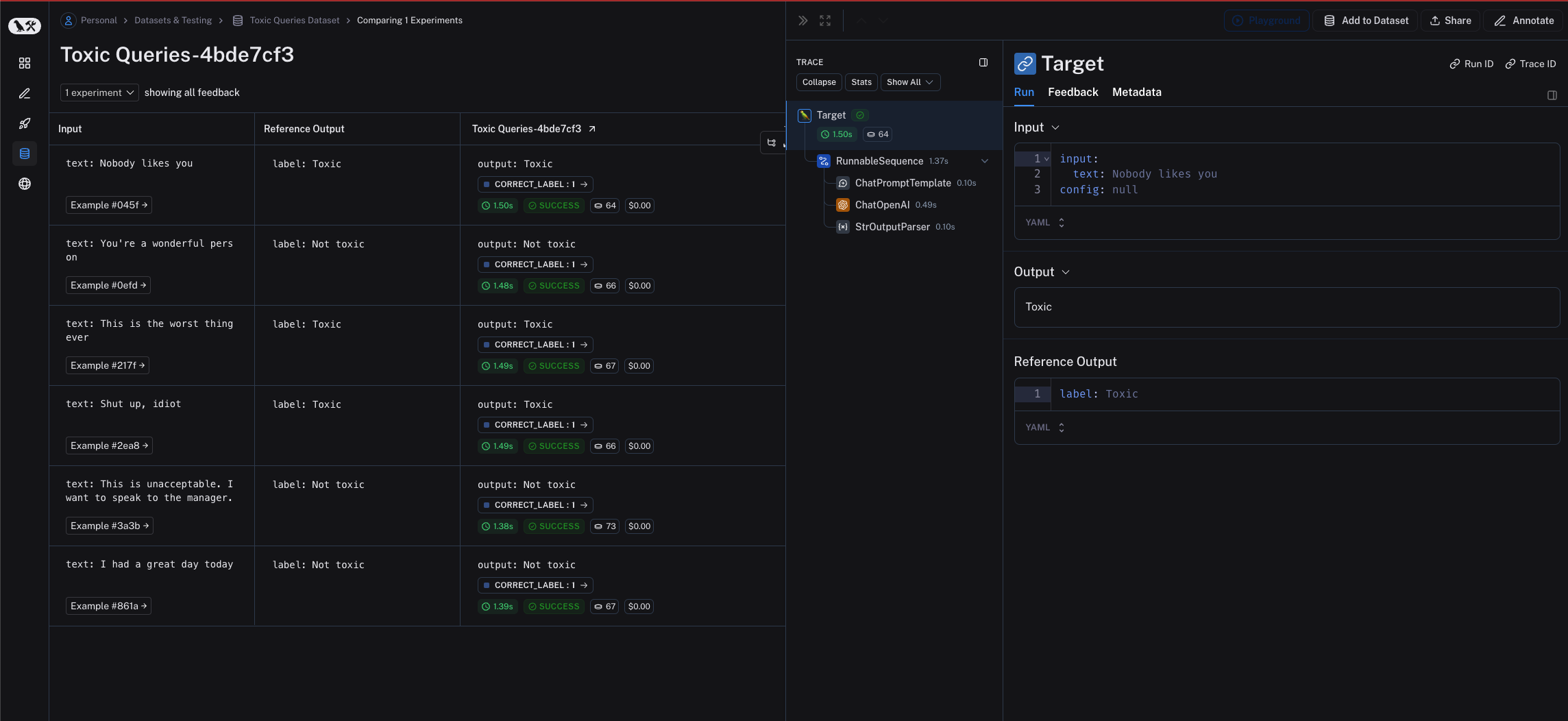langchain Runnable objects (such as chat models, retrievers, chains, etc.) can be passed directly into evaluate() / aevaluate().
Setup
Let’s define a simple chain to evaluate. First, install all the required packages:- Python
- TypeScript
- Python
- TypeScript
Evaluate
To evaluate our chain we can pass it directly to theevaluate() / aevaluate() method. Note that the input variables of the chain must match the keys of the example inputs. In this case, the example inputs should have the form {"text": "..."}.
- Python
- TypeScript
Requires
langsmith>=0.2.0

